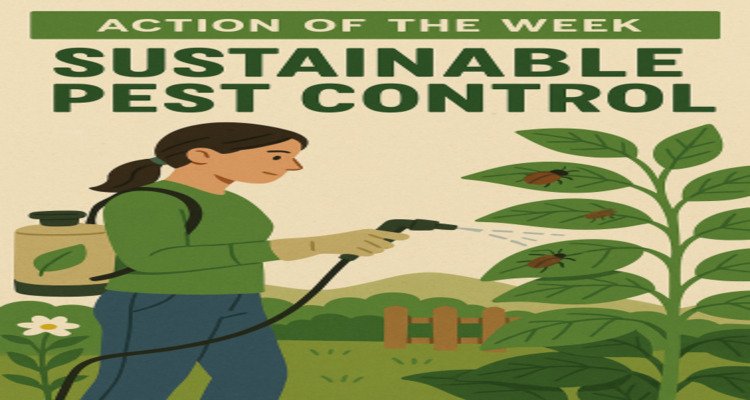Action of the Week: Sustainable Pest Control
Discover eco-friendly pest control tips to protect your home, health, and environment using sustainable, chemical-free methods that work.

As temperatures rise and humidity levels increase, many regions, especially areas like Florida, experience a surge in pest populations. Mosquitoes, gnats, and ticks thrive in these conditions, leading to increased encounters with humans and pets. While these pests are nuisances, they also pose significant health risks. However, it's essential to approach pest control in a way that safeguards both our health and the environment.
Grasping the Importance of Sustainable Pest Control
Traditional methods of pest control are highly reliant on chemical pesticides, with unforeseen consequences:
- Health Consequences: Exposure to certain pesticides may lead to health issues among humans and animals.
- Environmental Consequences: Chemicals can contaminate soil and water, causing the death of non-target species, including beneficial insects, birds, and aquatic animals.
- Pest Resistance: With the passage of time, pests can develop resistance to chemicals, reducing the efficacy of treatments.
Sustainable pest management deals with long-term avoidance and uses environmentally friendly methods of controlling pest populations.
Pests and Their Roles
While pests can be bothersome, it's worth noting that they have roles in our systems too:
- Mosquitoes: Besides being disease vectors for such infections as West Nile virus and dengue, mosquito larvae are a food source for fish and other aquatic life.
- Gnats: These are decomposers that help to decompose dead plants and organic matter, contributing to the soil's fertility.
- Ticks: Although they spread Lyme disease, ticks serve as a food source for certain birds and reptiles.
It is not the removal of these species but controlling their populations to limit health risks and inconvenience.
Sustainable Pest Control Methods
Prevention is Key
- Eliminate Standing Water: Drain flowerpots, bird baths, and gutters regularly to prevent mosquito breeding grounds.
- Keep Your Yard: Mow your yard and eliminate leaf cover to reduce tick habitats.
- Seal Entry Points: Seal windows and doors to prevent pests in your home.
Natural Repellents:
- Essential Oils: Citronella, eucalyptus, and peppermint essential oils repel mosquitoes and gnats. Use them in diffusers or sprays indoors.
- Plant-Based Solutions: Planting herbs like basil, lavender, and marigold will naturally repel some pests.
Integrated Pest Management (IPM):
IPM is a holistic method that includes a few strategies:
- Monitoring: Check your home and yard regularly for signs of insects.
- Identification: Identify pests correctly to choose the most effective control measures.
- Control: Use a combination of physical barriers, biological controls (e.g., introducing natural enemies), and, if necessary, selective chemical treatments.
Professional Consultation:
Collaborate with pest control professionals who prioritize green solutions. They can provide tailored solutions that are eco-friendly.
Benefits of Eco-Friendly Pest Control
- Healthier Living Environment: Reduced chemical use means less poison in your home.
- Environmental Protection: Saves useful insects and reduces pollution.
- Long-Term Performance: Addressing the root causes of infestations, eco-friendly solutions guarantee long-term performance.
- Cost-Saving: Preventive care can save money on expensive treatments later.
Conclusion
Embracing sustainable pest control is not all about managing pests; it's about developing a healthier relationship with our world. By discovering the functions that pests have and using environmentally friendly methods, we are able to protect our home, our well-being, and our world.
Discover more and receive professional guidance on sustainable pest control by going to pestcontrolglobal.com.













